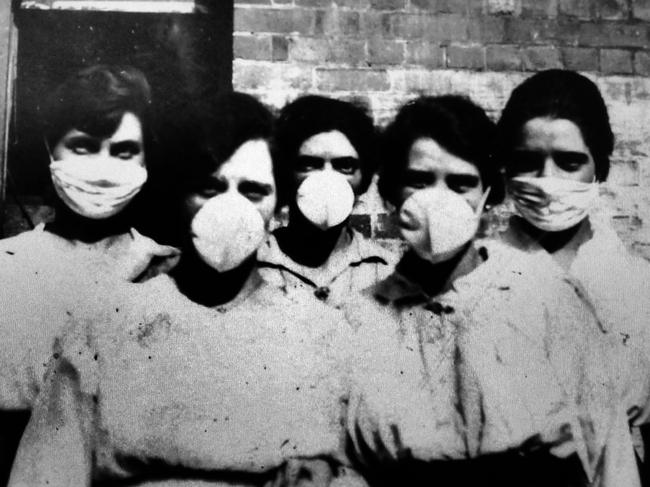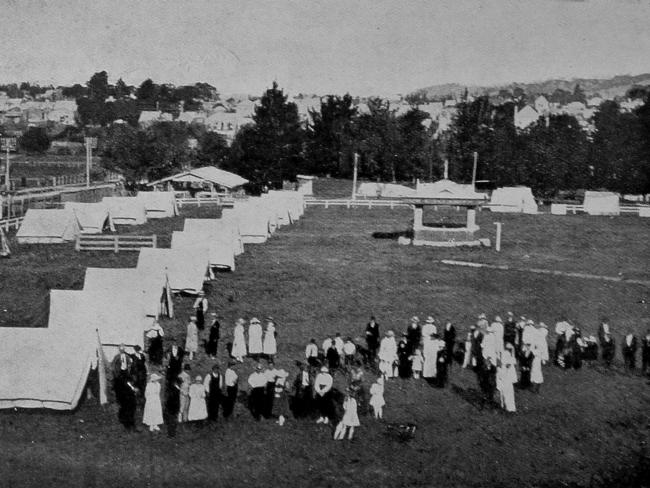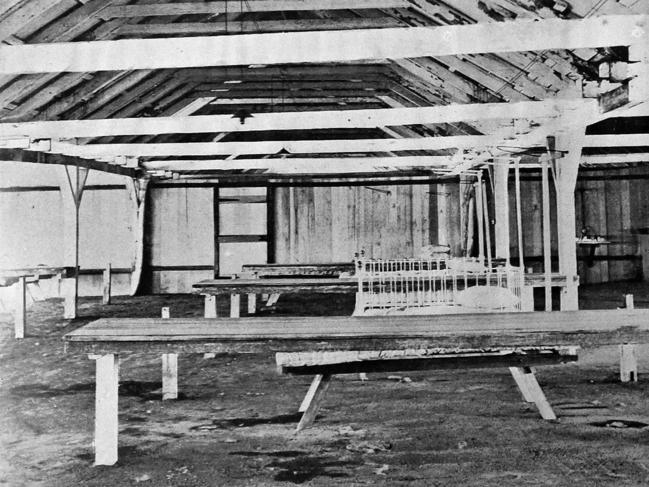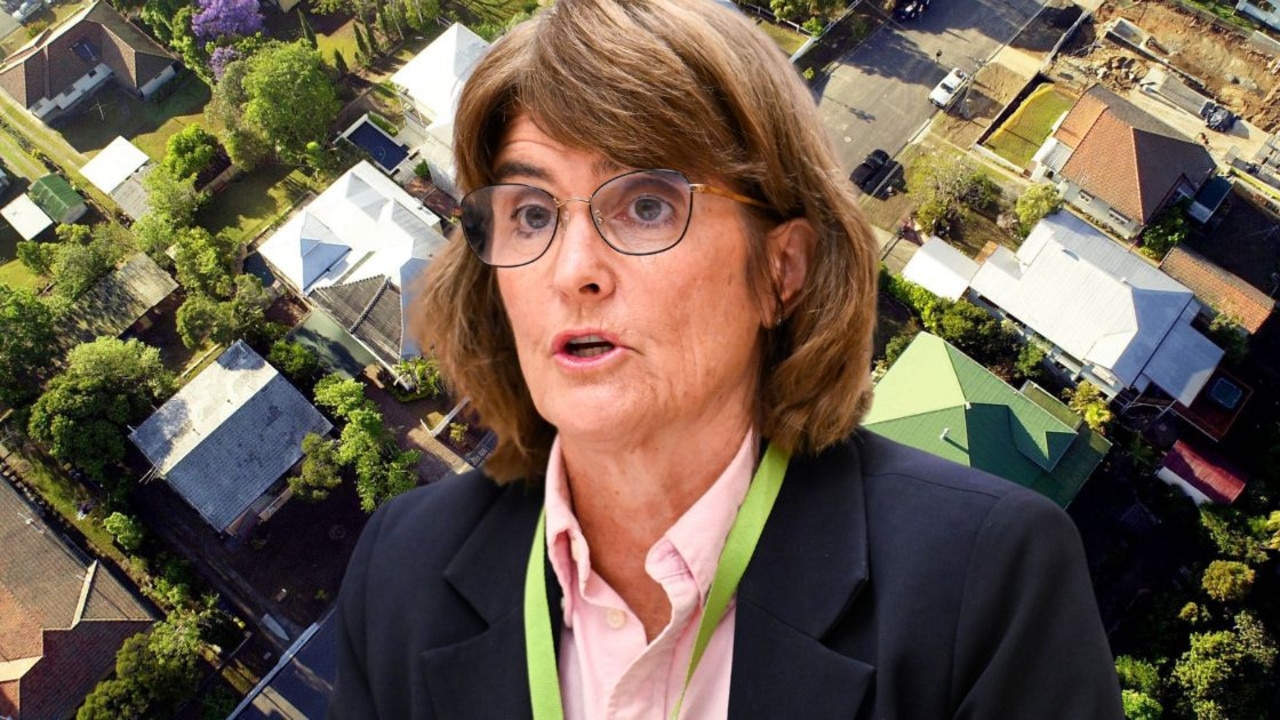Way We Were: How Queensland ushered in 2021
When the Queenslanders of yesteryear ushered in a new decade 100 years ago, the memories of another frightening pandemic still lingered.
CM Insight
Don't miss out on the headlines from CM Insight. Followed categories will be added to My News.
Whistles blew at the tramways powerhouse in Brisbane, the Ipswich railway workshops siren hooted, vessels in Cairns harbour sounded their horns, Maryborough’s fire bell tolled and town bands played, as Queensland welcomed 1921.
The Great War was two years past, the deadly Spanish flu was all but gone, and the first motor cars had been registered as the state farewelled 1920.
While reports came from London that its new year celebrations were the merriest since 1914, Brisbane was more subdued.
As it was so eloquently described at the time, “the sands of 1920 ran out in Brisbane on December 31 and the glass was up-ended without much ceremony. Compared with previous years, the streets almost might be said to have been deserted.”
Early in the evening, the “jaded thin streams of humanity paraded Queen Street, seemingly more out of a sense of duty to an old custom than out of sentiment for the occasion.”
Youngsters carrying lit candles inside perforated kerosene tins added touches of brightness but that was about all.
Senior Sargent Mann of Roma Street police reported the streets were “quiet as it could be” and his officers had found that there was less happening than on an ordinary Friday night.
A few motor cars passing along Queen St took up the welcome to the new year by sounding their horns.

“It does look as though the old year night festivities are dying out in Brisbane, and it is the more the pity because in these sternly materialistic times we can ill afford to kill such pretty sentiment,” one reporter lamented.
But while the city streets were almost deserted, there was life in the suburbs.
At a few minutes to midnight, the view of the city from Toowong Heights brightened when bonfires lit the horizon and a chorus of whistles and sirens swelled.
“Precisely on the hour a beautiful blue rocket burst over the city, followed by others. Then, gongs, bells, tins, trays and goodness knows what, came in for a fearful drubbing.
“The old year, perhaps, with its meagre triumphs and gruelling trials, had slipped away, and the baby 1921 had arrived in its swaddling clothes of hope.”
In Cairns, there were good-humoured crowds in the streets. Picture theatres were busy and hotels did an excellent trade.
“At the stroke of twelve the vessels in port blew their whistles, and one sent up rockets, giving altogether a very fine display. The new year received a boisterous and enthusiastic welcome so far as Cairns was concerned.”
In Ipswich and suburbs, hundreds of citizens paraded the streets from early after nightfall.
“As the town clock chimed 12, railway whistles shrieked, the workshops siren hooted, and from here, there, and everywhere arose sounds of demonstrative jubilation, dying away into silence as tired revellers sought their beds to snatch a few hours of sleep before entering on the duties and pleasures of the first day of 1921.”

At Babinda, the last hours of 1920 were celebrated in a right royal manner and everybody seemed to be in good spirits, especially those at the packed bar.
The only problem was that the business firms had closed at the usual hour, depriving the town of some light, “until the moon shone in all its glory”.
The Town Band played; there were motor cars; and explosions of crackers and noises of all descriptions to herald the coming year.
Outback towns were quieter, Longreach reporting it was probably the quietest ever.
Although crowds walked the main street until midnight “in anticipation of some jollification” there appeared to be no enthusiasm.
“Even at 12 o’clock, when bells should ring and whistles should whistle, the instruments employed to announce the arrival of the new year were very far from being noisy.”
The Town Band played at intervals, but otherwise it was quiet.
As in many other towns, partying was left to the Scots celebrating Hogmanay.
The Longreach Caledonians met at the Masonic Hall where two pipers played, haggis was eaten, and the famous whisky “received the usual attentions”.
Similarly, in Toowoomba, the Caledonian Society and Burns Club gathered at the Masonic Hall where merry peals of laughter rang out.
“The Scots, have been noted for the manner in which they have kept up the New Year Eve and Day and they kept it up with no less vim.” And so, 1920 came to a close.
“It hasn’t been a bad year,” said a man who stood with his hands in his pockets and rattled the residue of his week’s wages.
“I don’t know about Theodore (Queensland Premier) but I shall start the year with a surplus.”



